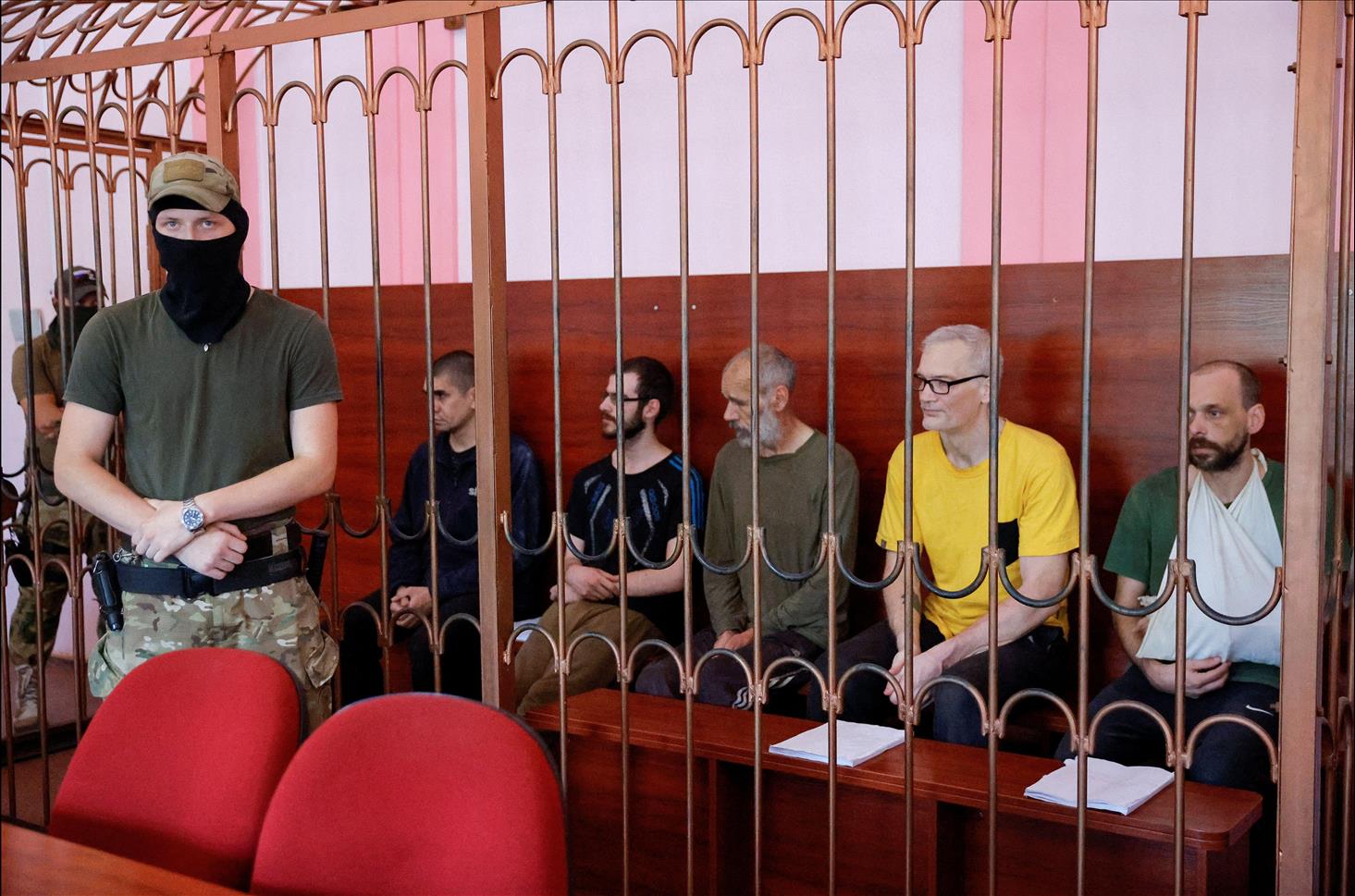
Ukraine War: Prisoner Swaps Have Been Going On For Centuries Here's How They Work
Russia ten foreign fighters – among them five British citizens – being held as prisoners of war (PoWs) from the fighting in Ukraine. The decision to repatriate these men provides a timely reminder of the resurgence of the international law rules surrounding PoW status and treatment.
Prisoner swaps have been relatively rare in recent years, partly because of the smaller number of full-scale state-on-state armed conflicts and partly because of warring states' reluctance to mutually agree on the designation of“protecting powers”. These are neutral countries or organisations that oversee the interests of PoWs. The last armed conflict to date in which protecting powers were successfully designated was the 1982 Falklands war, when the role was taken on by Switzerland (on behalf of the UK) and Brazil (on behalf of Argentina).
The legal framework governing the current armed conflict between Russia and Ukraine is international humanitarian law (IHL), which regulates the conduct of belligerents on the battlefield and also the treatment of“victims of warfare” – a legal expression that includes PoWs.
PoWs are combatants – members of the regular armed forces of a state or of organised armed groups – who have surrendered or been captured by the adverse party in the conflict. The party that captures them – referred to as the“detaining power” – legally has various duties regarding their treatment while in custody. And the PoWs have corresponding rights under IHL. These are elaborated in great detail in the , supplemented by its .
Setting aside the fact that one of the men, Dylan Healy, is a humanitarian aid worker and therefore under should not properly have been subject to detention as a PoW to begin with, one aspect that is of special interest in the context of this particular prisoner release is how it occurred. The foreign fighters were part of a substantial prisoner swap between the parties to the conflict.
In a deal brokered by Saudi Arabia, Ukraine released (along with the pro-Russian, Ukrainian politician and oligarch, Viktor Medvedchuk, who was facing charges of treason) in exchange for 215 Ukrainian soldiers. Most of the Ukrainian PoWs had been taken prisoner after the in May 2022.
Prisoners for the duration?PoWs are typically held by the detaining power until“the cessation of active hostilities”, as the convention expresses it – the whole point of keeping prisoners taken on the battlefield being to weaken the enemy by depriving him of their use.
But it has long been accepted under the laws of war that parties to an armed conflict may at their discretion release PoWs while the conflict is still ongoing. This usually serves to enable one side (or both) to relieve themselves of the logistical burden – also a legal obligation under the Geneva Conventions – of caring for them.
Relatives of Ukrainian POWs gather to demand their release, Kyiv, October 2022. ZUMA Press Inc/Alamy Stock Photo
Typically, such a release is put in place by one of two mechanisms. PoWs may be paroled – released on a solemn promise given on their honour not to take up arms again during that particular conflict. Alternatively, the parties to the conflict may make a special bilateral agreement to exchange prisoners, either as a one-off instance or as a general agreement intended to be of repeated application during that conflict (traditionally known as a“cartel”).
Somewhat ironically, the parole system, which has fallen out of general usage since the second world war, is still codified in the modern law (see ). On the other hand, ad hoc agreements for PoW exchanges, which have been far more typical in post-1945 conflicts, are nowhere mentioned in the IHL treaties. Instead, they are , a body of unwritten rules that forms the origin of much modern international law but that developed from state practice as opposed to being codified in treaties.
Cartels in the traditional sense, which originated in private agreements between opposing commanders for the ransom of prominent prisoners until, in the 17th century, evolving into agreements for the mass mutual exchange of professionalised soldiers who had been taken prisoner, have not been used since the first world war.
Why they were releasedIn this instance, the Russo-Ukrainian agreement of September 2022 may indicate that the Russian side in particular lacks the serious will or capacity to conduct mass trials of PoWs on charges that would not withstand legal scrutiny. It may also want to unburden itself of the onerous requirements for the care of such prisoners.
The timing of the exchange is also interesting. It came at about the same time as Vladimir Putin's declaration of partial mobilisation and threats to use nuclear weapons. So these apparently substantial escalations of the conflict were coupled with what might be seen as a conciliatory gesture. This suggests a degree of strategic uncertainty on Russia's part that could be a pointer to possible dissent within the regime or impatience with the duration of the conflict.
In any event, the consistency of the PoW exchange with international law is to be welcomed amid a conflict where the Russian side, in particular, has committed repeated violations.

Legal Disclaimer:
MENAFN provides the
information “as is” without warranty of any kind. We do not accept
any responsibility or liability for the accuracy, content, images,
videos, licenses, completeness, legality, or reliability of the information
contained in this article. If you have any complaints or copyright
issues related to this article, kindly contact the provider above.


















Comments
No comment